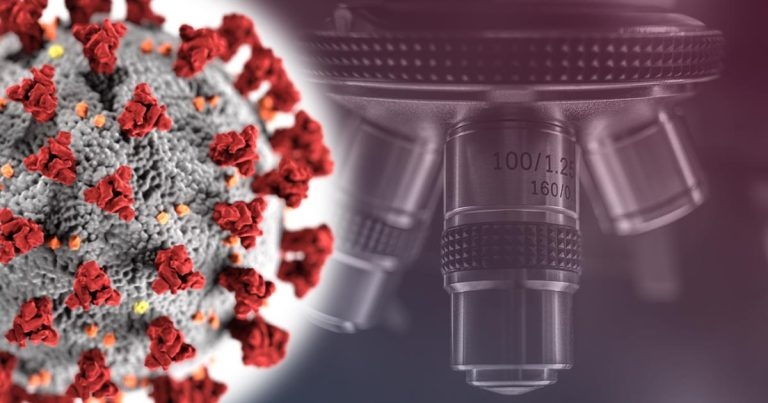7 Aug 2020
RVC researchers looking at whether it may be possible to use companion animal coronaviruses as models to alter the expression of the genes that cause severe disease in humans infected with COVID-19.

Veterinary scientists are leading groundbreaking research that is aiming to find a way to “switch off” the genes that cause COVID-19.
A research team at the RVC – working in collaboration with human health colleagues at Oxford, as well as researchers at the University of Cambridge and Nottingham Trent University – believe it may be possible to use companion animal coronaviruses as models to identify and alter the expression of the genes that cause severe disease in some human patients infected with SARS-CoV-2 coronavirus.
Basing much of their efforts on work done previously in the field of diabetes, the team also hopes to use whole genome sequencing techniques to try to identify individuals likely to develop the most severe, life-threatening symptoms.
Canine respiratory coronavirus and feline enteric coronavirus both share similarities with the virus that causes COVID-19, meaning that studying these naturally occurring infections in pets could provide significant new insights.
Coronavirus is often seen in kittens and while most resolve the infection, in some cases a mutated version of the virus can re-emerge months or years later as FIP – a far more severe and usually fatal condition.
With new evidence emerging that SARS-CoV-2 may be associated with clusters of acute vasculitis in children, investigating FIP in cats to help find the genes that cause such an extreme response in humans was a logical step for professor of veterinary clinical genetics at the RVC, Lucy Davison.
Prof Davison said: “We were seeing reports of these more unusual COVID‑19 complications in young children – things like vasculitis – and we thought there might be some overlap with FIP in the way the immune system is contributing to making certain individuals more unwell.
“It seemed to us that FIP would be a useful model to study, and knowledge of the genes and mechanisms involved in FIP might help with understanding some unforeseen late or chronic complications of the virus that causes COVID-19.
“If we can find the right genetic targets, we could focus on those druggable targets – those genes that are driving the disease process – with targeted drugs to alter the expression of those genes and effectively switch them off.”
The RVC has been awarded a grant worth almost £200,000 by UK Research and Innovation to undertake the study, named Mapping Animal Susceptibility to Coronavirus: Outcomes and Transcriptomics (MASCOT).